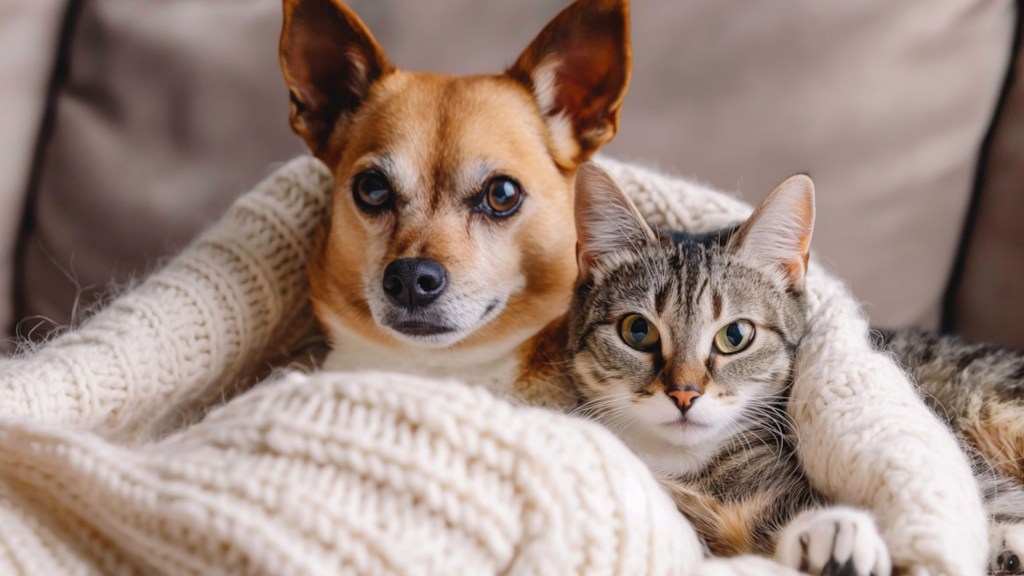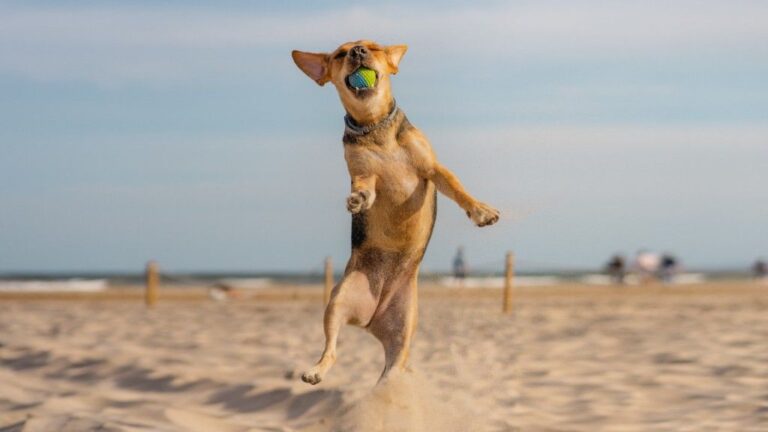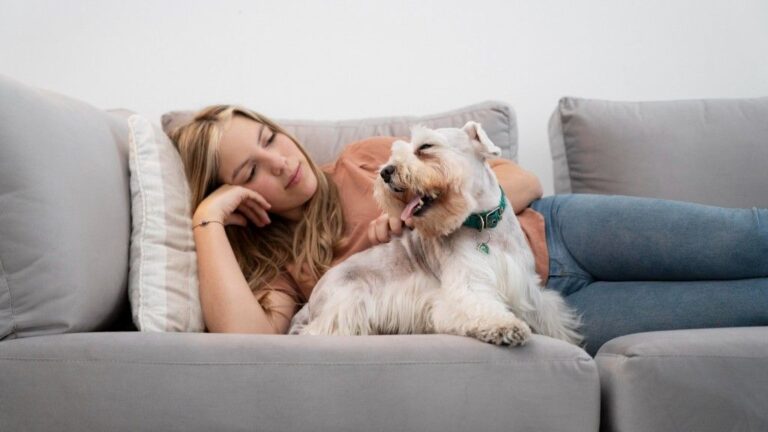6 Small Dog Breeds That Are Great with Cats – When it comes to fostering harmony between dogs and cats, choosing the right breed can make all the difference. While some dog breeds are naturally inclined to chase smaller animals, others exhibit a calm, gentle demeanor that makes them excellent companions for feline friends. If you’re looking for a small dog breed that will coexist peacefully with your cat—or even become best buddies—we’ve got you covered.
In this article, we’ll explore six small dog breeds known for their compatibility with cats, complete with a detailed chart summarizing their key traits.
Table of Contents
Why Compatibility Matters
Cats and dogs have long been portrayed as natural enemies, but in reality, many breeds thrive in multi-pet households. The key lies in selecting a dog with a temperament suited to living alongside a cat. Traits such as patience, gentleness, and low prey drive are critical when introducing a small dog into a home with feline residents. Additionally, early socialization plays a vital role in ensuring smooth interactions between species.
Below is a list of six small dog breeds that are not only adorable but also great companions for cats.
Also Read: 7 Strongest Muscular Dog Breeds That Exude Power
Cavalier King Charles Spaniel
- Temperament: Affectionate, gentle, and friendly.
- Size: Small (weighs 13–18 lbs).
- Lifespan: 9–14 years.
- Best For: Families with indoor cats.
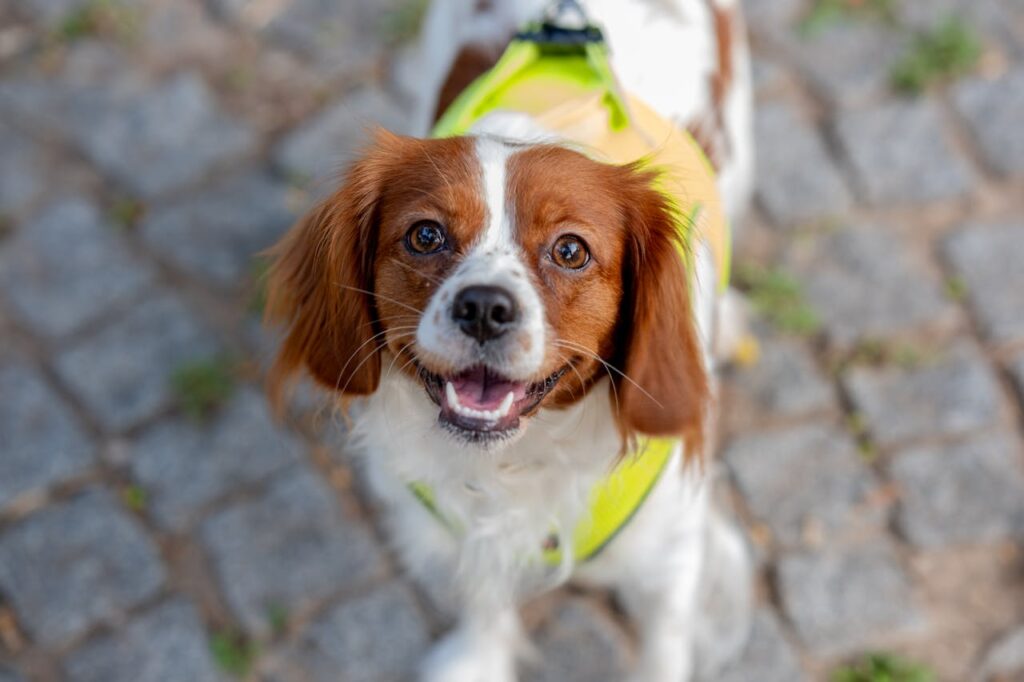
The Cavalier King Charles Spaniel is renowned for its loving and easygoing nature. These dogs are highly adaptable and enjoy forming strong bonds with both humans and other pets, including cats. Their playful yet non-aggressive demeanor ensures they won’t intimidate or harass a feline companion. Cavaliers often view cats as part of their “pack” and may even curl up next to them for naps.
Bichon Frise
- Temperament: Playful, cheerful, and sociable.
- Size: Small (weighs 10–20 lbs).
- Lifespan: 12–15 years.
- Best For: Active households with energetic cats.
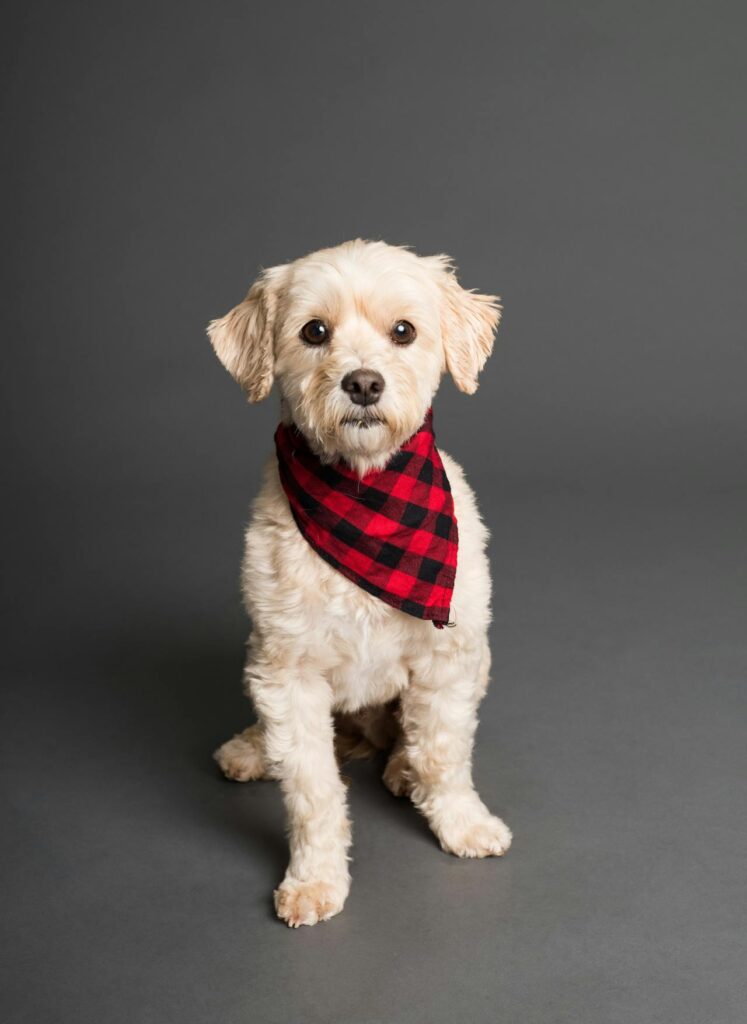
The Bichon Frise is a bundle of joy wrapped in fluffy white fur. Known for their friendly disposition, these dogs are curious and enjoy interacting with everyone—including cats. Their lack of aggression and moderate energy levels allow them to match the pace of most felines. A Bichon Frise will likely engage in playful antics without overwhelming a more reserved cat.
Shih Tzu
- Temperament: Loyal, affectionate, and laid-back.
- Size: Small (weighs 9–16 lbs).
- Lifespan: 10–16 years.
- Best For: Homes with older or less active cats.
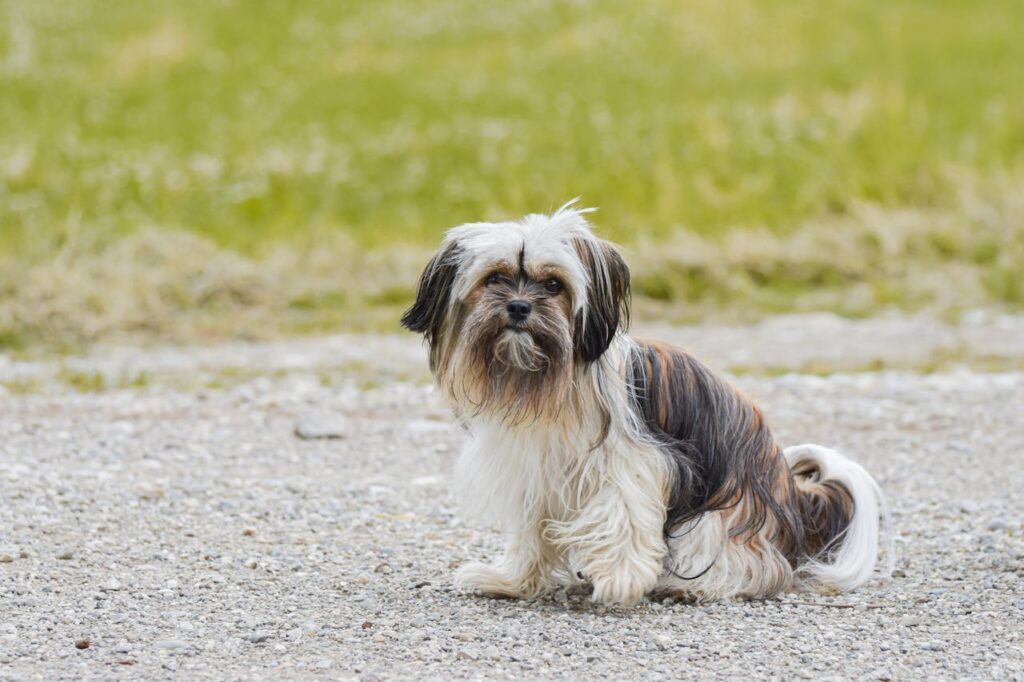
Shih Tzus are famously docile and thrive on companionship, making them ideal housemates for cats. They rarely display dominance or territorial behavior, which helps prevent conflicts. With their relaxed attitude, Shih Tzus are content to lounge around with their feline friends, sharing cozy spots on the couch or bed.
Pug
- Temperament: Charming, mischievous, and affectionate.
- Size: Small (weighs 14–18 lbs).
- Lifespan: 12–15 years.
- Best For: Playful cats who enjoy interaction.
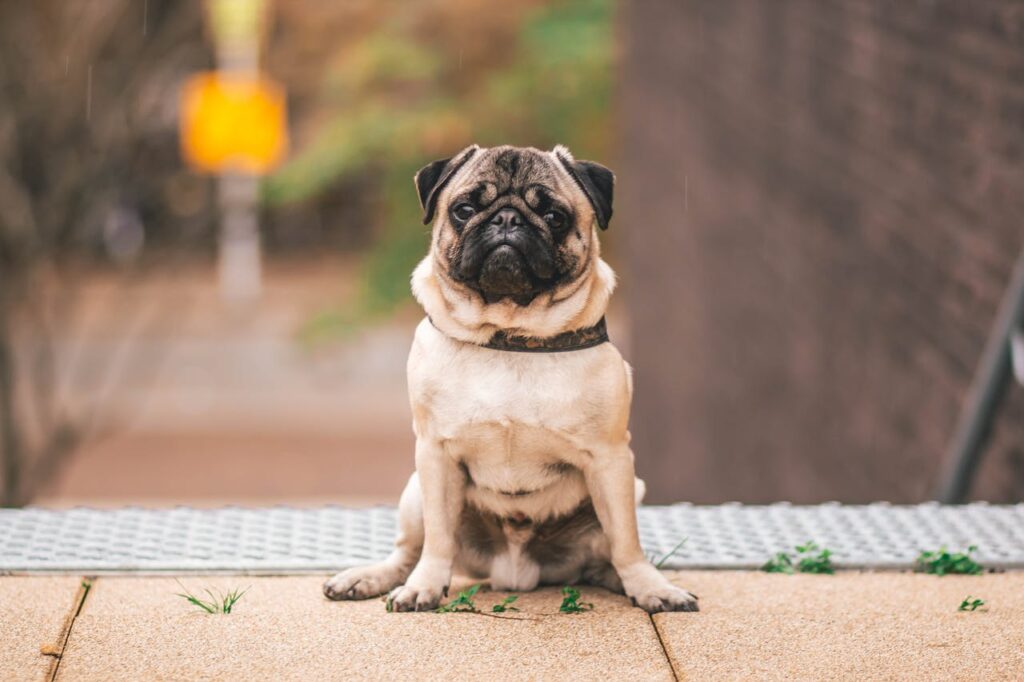
Pugs are lovable clowns with an infectious zest for life. Despite their occasional bursts of energy, they are generally tolerant and accepting of other pets. Pugs tend to be curious about cats and may initiate play sessions, but they respect boundaries if a cat prefers solitude. Their sturdy build also means they can handle accidental swipes from a feisty feline.
Boston Terrier
- Temperament: Friendly, intelligent, and adaptable.
- Size: Small (weighs 12–25 lbs).
- Lifespan: 11–13 years.
- Best For: Confident cats who aren’t easily intimidated.
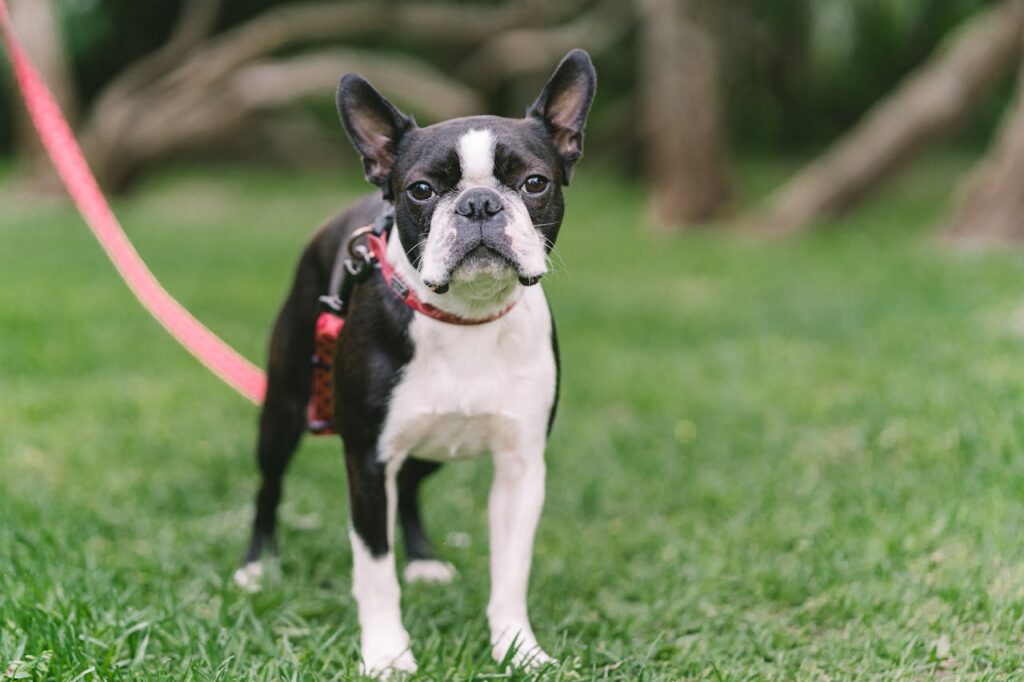
Boston Terriers are nicknamed the “American Gentleman” for good reason—they possess a polite and amiable personality. While they do have some terrier instincts, their overall calmness and friendliness outweigh any potential prey drive. Boston Terriers are quick learners, so training them to behave appropriately around cats is relatively straightforward.
Also Read: 9 Best Guard Dog Breeds for Protection in Ohio
Italian Greyhound
- Temperament: Graceful, sensitive, and affectionate.
- Size: Small (weighs 7–14 lbs).
- Lifespan: 12–15 years.
- Best For: Timid or shy cats.
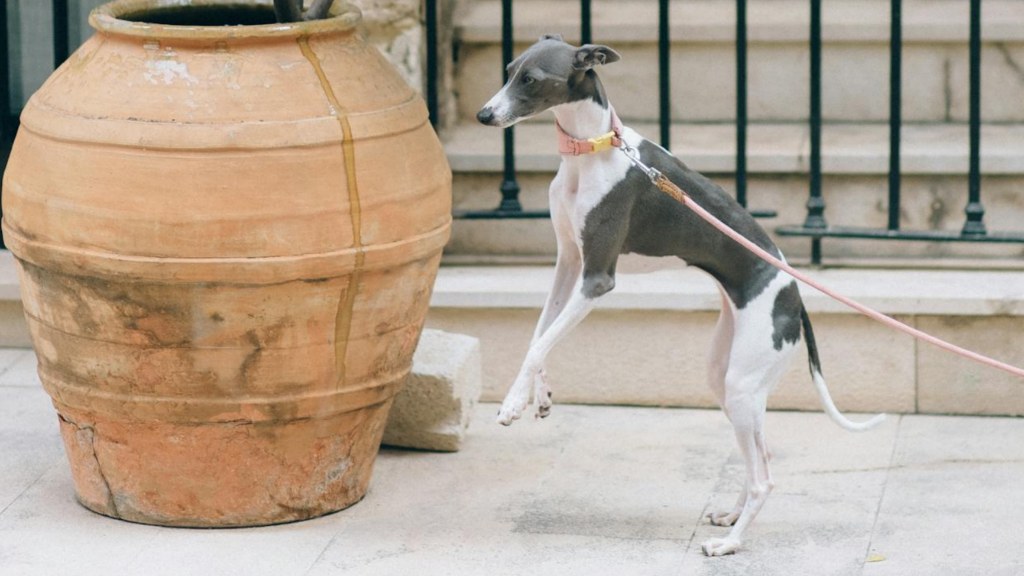
Despite their sleek appearance, Italian Greyhounds are surprisingly delicate and gentle. They are unlikely to provoke or chase a cat due to their low prey drive and preference for peaceful environments. Italian Greyhounds share many traits with cats themselves, such as enjoying quiet spaces and soft bedding, which fosters mutual understanding and companionship.
Comparison Chart: Key Traits of the 6 Best Small Dog Breeds for Cats
| BREED | SIZE | TEMPERAMENT | ENERGY LEVEL | PREY DRIVE | BEST ENVIRONMENT |
|---|---|---|---|---|---|
| Cavalier King Charles | Small | Affectionate, Gentle | Moderate | Low | Indoor/Family Homes |
| Bichon Frise | Small | Playful, Cheerful | High | Very Low | Active Households |
| Shih Tzu | Small | Loyal, Laid-Back | Low | Very Low | Calm/Relaxed Settings |
| Pug | Small | Charming, Mischievous | Moderate | Low | Playful Environments |
| Boston Terrier | Small | Friendly, Intelligent | Moderate | Low | Multi-Pet Homes |
| Italian Greyhound | Small | Sensitive, Graceful | Low | Very Low | Quiet/Serene Spaces |
Why These Breeds Excel with Cats
Each of these small dog breeds brings unique qualities that contribute to their success in mixed-species households:
- Low Prey Drive: None of these breeds exhibit strong hunting instincts, reducing the likelihood of chasing or antagonizing cats.
- Adaptability: Their ability to adjust to different environments and personalities ensures smooth integration into homes with cats.
- Gentle Nature: All six breeds are known for their kindness and patience, which prevents roughhousing or intimidation.
- Socialization Skills: Early exposure to cats during puppyhood further enhances their ability to form positive relationships with feline companions.
Tips for Introducing a Small Dog to a Cat
Even with compatible breeds, proper introductions are essential to creating a harmonious household. Here are some tips to ensure a successful meeting:
- Start Slowly: Allow the dog and cat to sniff each other through a baby gate or closed door before face-to-face interactions.
- Supervise Initial Meetings: Keep the dog on a leash to maintain control and prevent overexcited behavior.
- Reward Good Behavior: Use treats and praise to reinforce calm and respectful actions from both pets.
- Provide Separate Spaces: Ensure the cat has access to areas where it can retreat if feeling overwhelmed.
- Be Patient: Building trust takes time, so don’t rush the process.
Choosing a small dog breed that gets along well with cats doesn’t mean sacrificing personality or charm. From the regal Cavalier King Charles Spaniel to the dainty Italian Greyhound, these six breeds offer a perfect blend of affection, adaptability, and compatibility. By selecting one of these breeds and following proper introduction techniques, you can create a loving, harmonious environment where both your dog and cat feel safe and valued.

